Search
Search Results

Definition
Euclid
Euclid of Alexandria (lived c. 300 BCE) systematized ancient Greek and Near Eastern mathematics and geometry. He wrote The Elements, the most widely used mathematics and geometry textbook in history. Older books sometimes confuse him with...
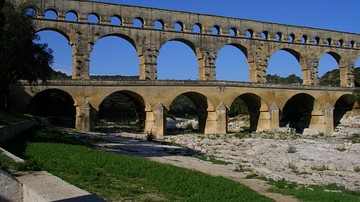
Definition
Aqueduct
Aqueducts transport water from one place to another, achieving a regular and controlled supply to a place that would not otherwise receive sufficient quantities. Consequently, aqueducts met basic needs from antiquity onwards such as the irrigation...
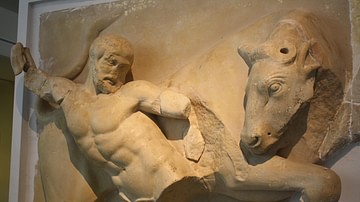
Definition
Hercules
Hercules (Herakles) was a hero of Greek mythology famous for his great strength and endurance. Celebrated as an extraordinary mortal, his success in seemingly impossible labours won him an immortal place amongst the gods. As the greatest...
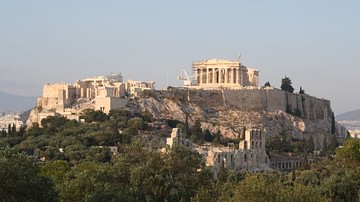
Definition
Draco's Law Code
Draco was an aristocrat who in 7th century BCE Athens was handed the task of composing a new body of laws. We have no particular clues concerning his life and general biography and the only certainty is that, as an aristocrat and an educated...

Definition
Solon
Solon (c. 640 – c. 560 BCE) was an Athenian statesman, lawmaker, and poet, who is credited with restructuring the social and political organisation of Athens and thereby laying the foundations for Athenian democracy. Such were his accomplishments...

Definition
Nyx
Nyx (also known as Nox or the Night) is the personification of the night in Greek mythology. Coming from Chaos (Void), Nyx is a primordial deity (Protogenoi). The Protogenoi represent the physical and elemental forces of the world and consist...

Definition
Virgil
Publius Vergilius Maro (70-19 BCE), better known to most modern readers as Virgil, was one of the greatest poets of the early Roman Empire. His best-known work, the Aeneid, told of a Trojan prince, Aeneas, who escaped the burning of Troy...
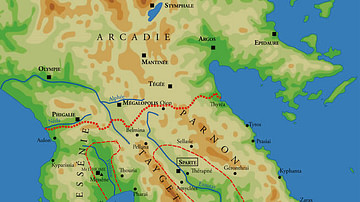
Definition
Peloponnesian League
The Peloponnesian League (c. 550 BCE - c. 366 BCE) was a loose confederation of Greek city-states led by Sparta. The League was the oldest and longest-lasting political association in the ancient Greek world. For Sparta, the League gave it...
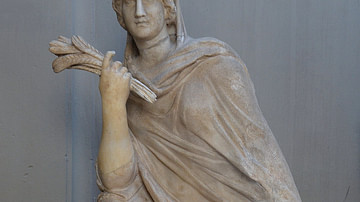
Definition
Tyche
In Greek mythology, Tyche is the goddess and personification of good luck, chance, and fortune. Tyche's popularity grew after the Classical period when many cities and officials across the Greek world and the Mediterranean adopted her as...
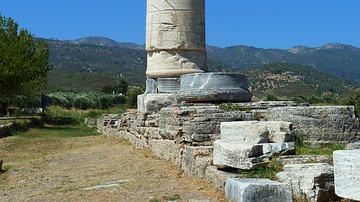
Definition
Samos
Samos is a Greek island in the east Aegean, just off the coast of modern-day Turkey. It particularly flourished in the 6th century BCE and was famous in antiquity for its navy, wine, and important sanctuary to Hera. Samos was an active member...